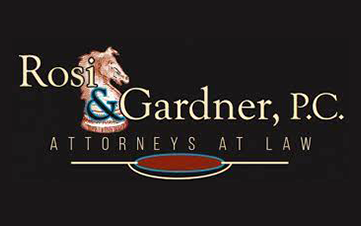It may be tempting to just “add” your child or children to the title (deed) to your property, as an estate planning tool. Don’t do it; just don’t.
Why not? There are several reasons, including:
- Tax
- Liability
- Loss of Control
Adding someone else’s name to the title to your real estate can have substantial tax consequences. As of that date, that person is an owner of the property. If the property goes up in value in the coming years, that person could be subject to substantial capital gains tax on some or all of the property. There could also be complications with Medicaid eligibility, if you later apply for public assistance, such as for the costs of a long-term care facility. In effect, you have given away part or all of that property, and could be deemed ineligible on that basis, for some period of time.
If the person you “add to the deed” is ever involved in any legal proceedings, including divorce, your property could be dragged into that court case. If that person ever has a judgment entered against them (collection case, automobile accident, child support, etc.), then a lien might be recorded against your property. By “adding them to the deed,” you have given that person a present ownership interest in the property.
Because that person now has an ownership interest in the property, that person’s signature will be required for you to do anything with the property. If your circumstances change, and you want to sell the property, take out a line of credit against it, or something else, that person’s agreement will have to be obtained. He or she might not agree with what you want to do, and you could be stuck.
A better alternative, preferred in every circumstance that we can think of, would be to pass your property by a will. You can write your own “holographic will.” In Michigan, the requirements for a valid holographic (self-written) Last Will & Testament (see MCL 700.2502) include:
- It has to be dated;
- It has to be signed by the testator; and
- The material portions have to be in the testator’s own handwriting.
Or, Michigan has a “statutory will” (fill-in-the-blanks) that you can find here. That form won’t fit everyone’s needs. But, if what you want to accomplish is simple and straightforward, it might. You must understand that your Last Will & Testament only passes assets that are in your name alone. If someone else’s name is on the title to the asset, it goes that person without going through your Will and Estate. Everyone’s situation is different; we strongly recommend that you consult with an attorney for guidance specific to your situation.
Estate planning by deed? Not recommended.
Rosi & Gardner, P.C.
Latest posts by Rosi & Gardner, P.C. (see all)
- Is Collaborative Divorce the Right Choice for You? Exploring a Path to Amicable Separation - November 29, 2023
- Choosing Harmony: Why Opt for Collaborative Divorce Over Traditional Divorce - August 30, 2023
- Benefits of Mediated Divorce - May 24, 2023
